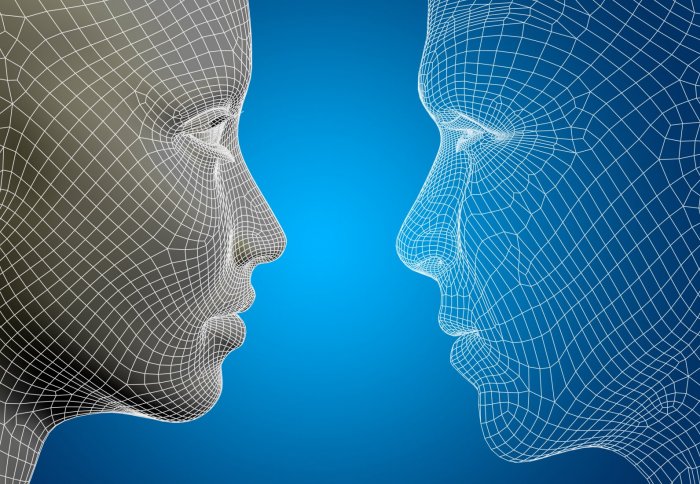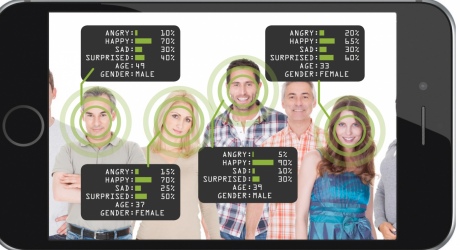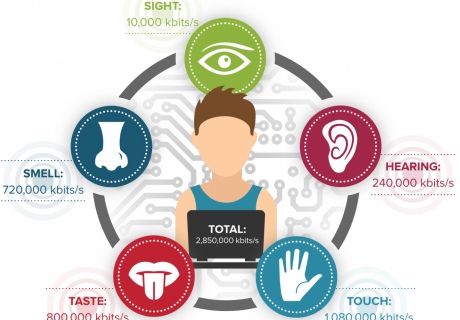'Virtual dates' and DNA matching: the future of dating revealed

Virtual reality, wearable technology and DNA could be future of dating according to a student report from Imperial College Business School.
Students from the MSc Management programme were commissioned by relationship website eHarmony.co.uk to produce a report on what online dating and relationships could look like by 2040.
The students compiled a business report based on analysis of how people’s lifestyle habits have evolved over the past 100 years, drawing on interviews with experts across the fields of anthropology, sociology, technology and biomedicine.
The aim of the project was to help eHarmony gain insight into emerging trends within the dating industry and the company’s place within the current market. The report was undertaken by the students for their consulting project, where they are required to work on a real business brief by an external company as part of their degree.

Dr. Sarah Wilsey, Programme Manager of the MSc Management programme at Imperial College Business School said: “This consulting project with eHarmony demonstrates our students’ ability to take the business knowledge and skills they learn during their degree, such as marketing, strategy and research and apply them to a real business brief. The students took a creative approach to the project, drawing on both their business skills and knowledge of Imperial College as a global leader in technology and innovation.”
“The consulting project is a key part of the MSc Management that allows students to develop hands-on experience, preparing them for a wide range of careers in management, such as consultancy and financial services.”
Full-sensory virtual dating
The report predicts that in 25 years the rate at which data can be shared will be so fast that all five human senses could be digitally simulated to create a full-sensory virtual reality.
This would make dating a far more efficient and less time consuming process. A full sensory virtual date would be exactly like a real one, for example a person could hold someone’s hand and even smell their fragrance – but from the comfort of their own home. Advances in wearable technology would allow people to meet in virtual reality from any location around the world.

Biotechnology
While in recent years DNA research has been cost prohibitive, the price of DNA sequencing has fallen from around £52million in 2003 to £650 today. Greater affordability will allow for more research, and by 2040 people may have a clear understanding of the role our DNA plays in attraction, as part of the ‘matching’ process.
Behaviour-based matching
The growing ‘hyper-connectivity’ between our everyday devices – known as the ‘Internet of Things’ – together with the prominence of wearable technology, could transform how people meet by 2040. Instead of describing yourself in words, ‘matching’ could become even more accurate through tracking people’s behaviour and how they react to different situations.
Physically, devices could track peoples’ actions and find other singles that have a similar lifestyle pattern, tracking data such as the places people go and the activities they do. A product such as Smart Contact Lenses could track the type of people you look at most frequently when your body produces the signs of attraction.

Big data
Improved connectivity and artificial intelligence could also allow for greater ‘deep learning’ by processing of vast amounts of highly complex data from multiple sources.
The speed of this analysis would allow for real-time feedback and could improve the decision making process when it comes to people’s love life. While on a date, singles would be able to receive information on their surroundings and actions, such as how well topics of conversation are being received, and an appropriate course of action. For couples, this data would help improve their relationship by identifying issues and resolutions, and can even calculate the optimum time for life milestones, such as when, or if, to get married or have children.
Commenting on the findings of the report, EHarmony UK Country Manager, Romain Bertrand, said: "By 2040 we estimate that 70 per cent of couples will get together online, with technology revolutionising the way we find love and build our relationships.
He continued: “This report was compiled by some of the future’s brightest minds, and reflects what we’re already seeing in the online dating industry – that people want to be matched with quality people in the simplest and most efficient way possible. We’re constantly improving our own algorithm with deep learning and we’re already exploring new technologies to help us move forward in line with some of the advances outlined in this report.”
To find out more read the full report here, or explore the evolving relationship between dating and technology from the 1840s to 2045 with the Future of Dating interactive timeline.
Article text (excluding photos or graphics) © Imperial College London.
Photos and graphics subject to third party copyright used with permission or © Imperial College London.
Reporter
Laura Singleton
Communications Division